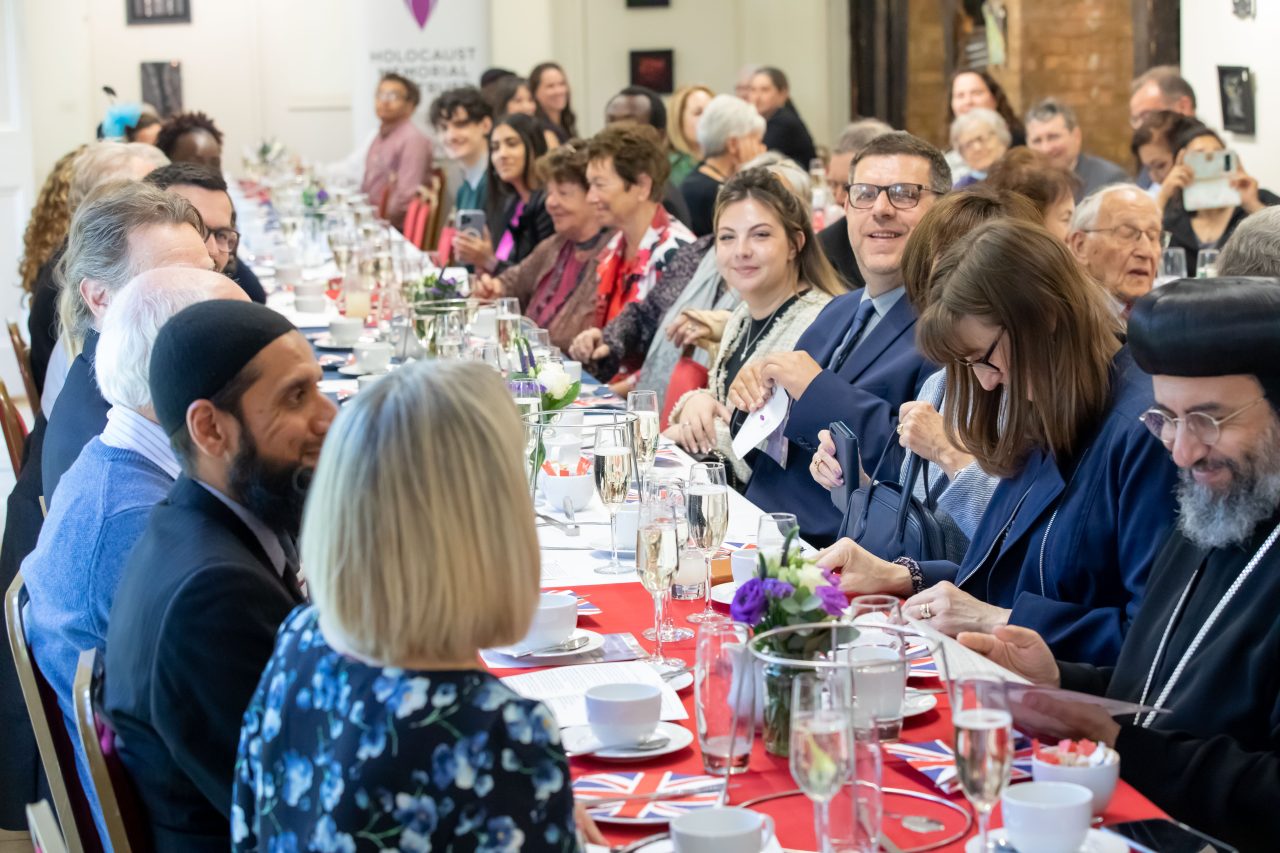
Friends of HMDT
Set up a regular donation to become a friend of HMDT. You will receive an HMD pin badge and invitations to exclusive events.
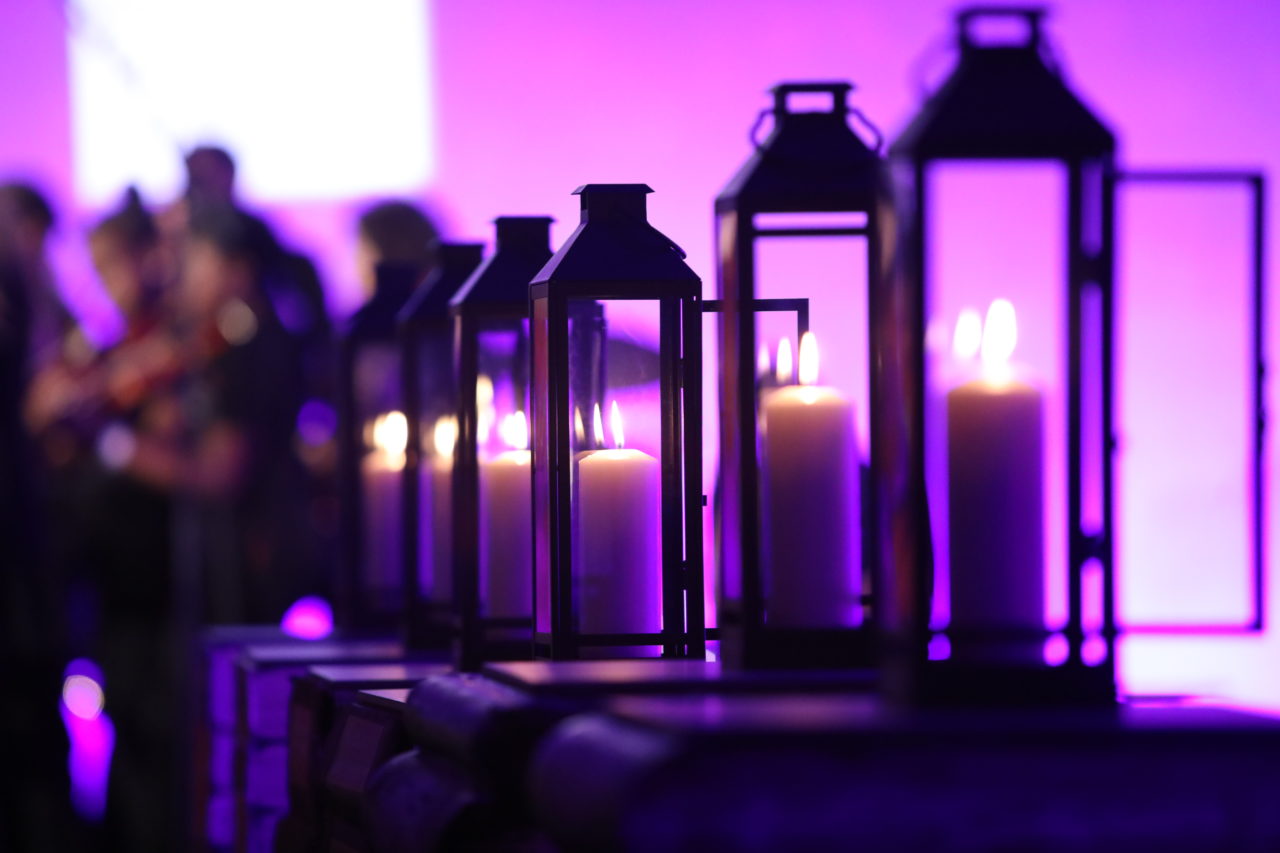

Set up a regular donation to become a friend of HMDT. You will receive an HMD pin badge and invitations to exclusive events.
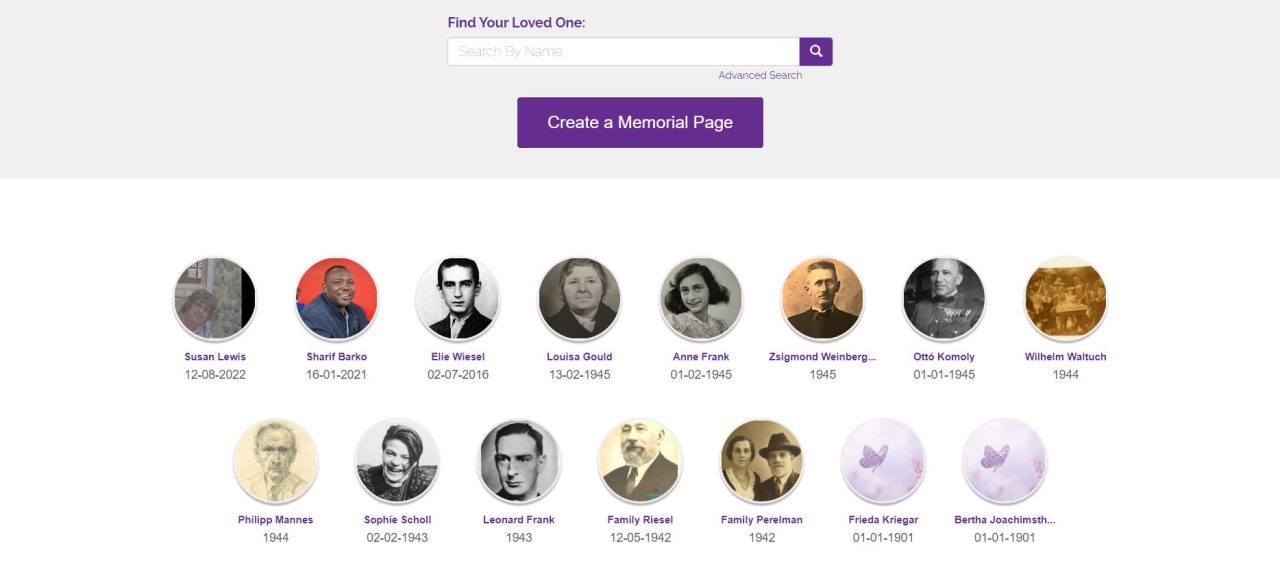
Our Memorial Pages are a unique space where you can learn about the lives of people affected by genocide, and create a lasting personalised tribute.
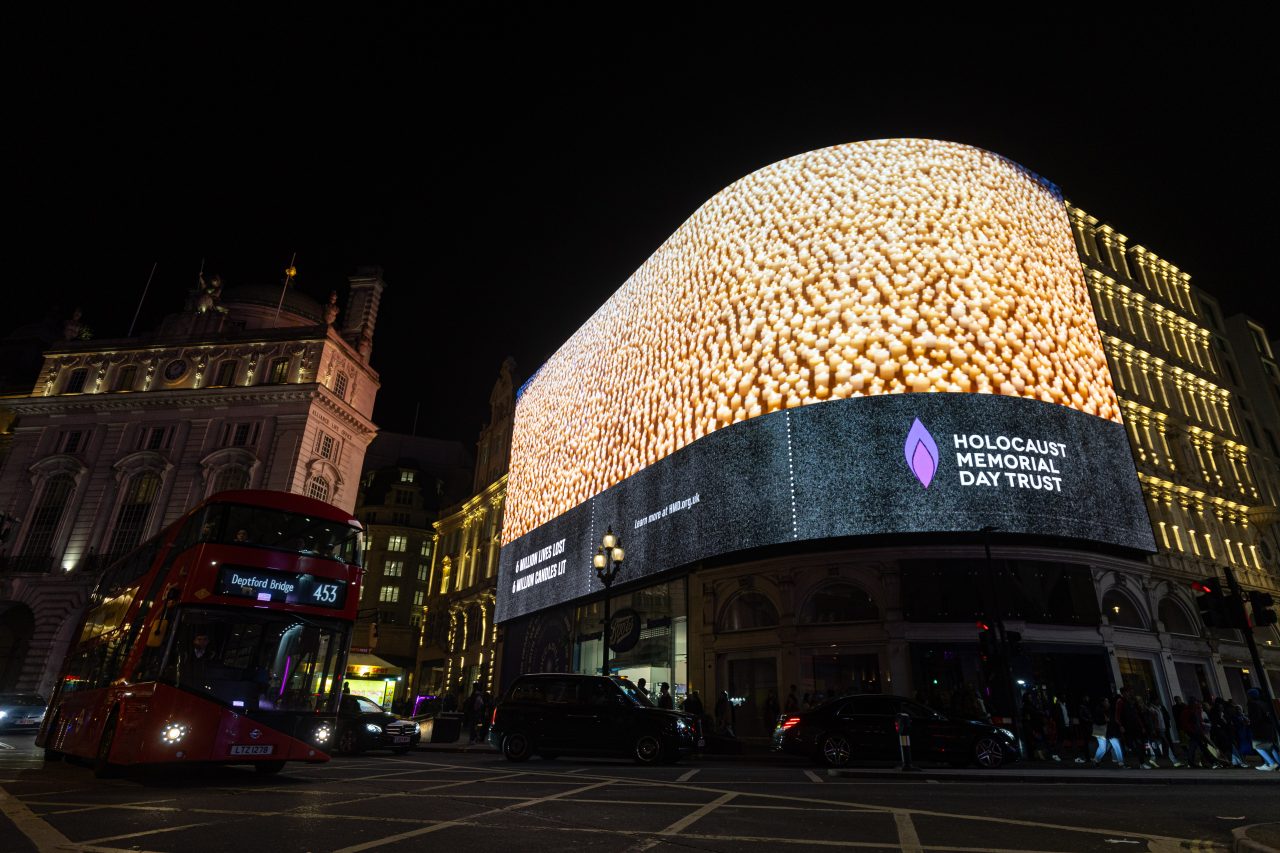
We have published our HMD 2024 Impact Report, which showcases the impact HMD 2024 had on communities across the UK during an adverse year.

Holocaust Memorial Day is the day for everyone to remember the 6 million Jews murdered during the Holocaust, alongside the millions of people murdered under Nazi persecution of other groups, and in more recent genocides in Cambodia, Rwanda, Bosnia and Darfur.
Between 1941 and 1945, six million Jewish men, women and children were murdered by the Nazis and their collaborators. Their attempt to murder all the Jews in Europe, shook the foundations of civilisation.
The Nazis targeted anyone they believed threatened their ideal of a ‘pure Aryan race’, including Roma and Sinti people, disabled people, gay people, political opponents and others.
From 1975 to 1979, the Khmer Rouge, led by Pol Pot, imposed an extremist programme to reconstruct Cambodia. Millions of people died through starvation, disease and exhaustion, and thousands were executed.
In a violent outpouring in 1994, approximately one million Tutsis and moderate Hutus were murdered in just 100 days in the Genocide in Rwanda.
In July 1995, against the backdrop of an ongoing civil war, Bosnian Serb forces led by Ratko Mladić murdered around 8,000 Muslim men and boys in the town of Srebrenica.
In 2003 a civil war began in the region of Darfur. Arab militia, known as the Janjaweed attacked black African people, destroying entire villages, murdering civilians and displacing many more.
The experiences of Holocaust and genocide survivors, as well as those who were murdered, give us a unique insight into the lives of those who have endured persecution.
Explore our collection of life stories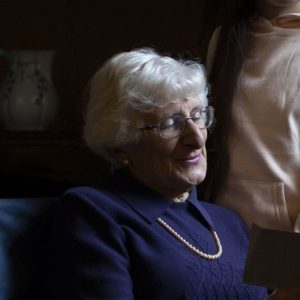
Yvonne Bernstein was one of thousands of Jewish children hidden across Europe during the Holocaust. Her identity disguised, she was able to survive, avoiding the fate of 1.5 million Jewish children who were murdered.
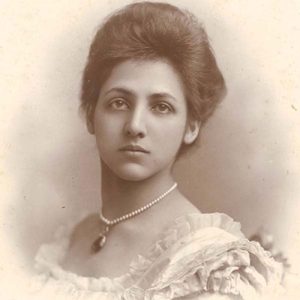
Catherine Duleep Singh was a Sikh Princess who grew up in Norfolk. She helped Jewish Families escape Nazi Germany and is sometimes referred to as the ‘Indian Schindler’.
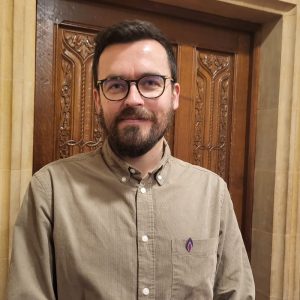
Smajo Bešo has seen the worst and best of humanity. After surviving the horrors of the genocide in Bosnia, he found refuge and safety in the UK where he now proudly embraces his Bosnian roots and new-found Geordie identity.
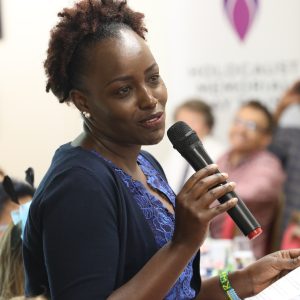
Antoinette Mutabazi is a child survivor of the genocide against the Tutsi in Rwanda. She endured a harrowing 90-day period, hiding from the killers who murdered many of her family members.
Holocaust Memorial Day Trust provides free resources for everyone to get involved with Holocaust Memorial Day. From lesson plans and assemblies to poems and films, our resources will help you organise meaningful activities for Holocaust Memorial Day.
Discover our resources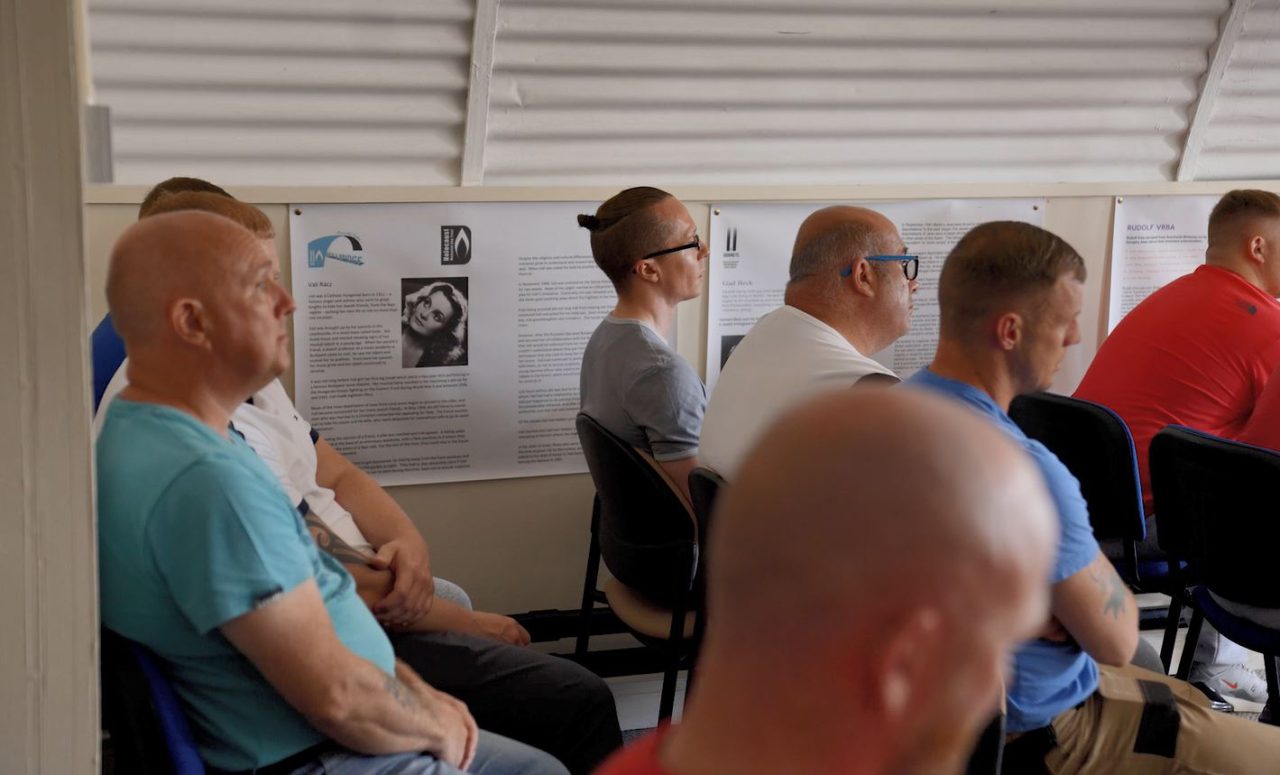
This set of worksheets and PowerPoint introduces teachers and learners to six different genocides through a key date, the experiences of one person, and the story of one artefact. The final worksheet explores more current issues around discrimination, here in the UK.
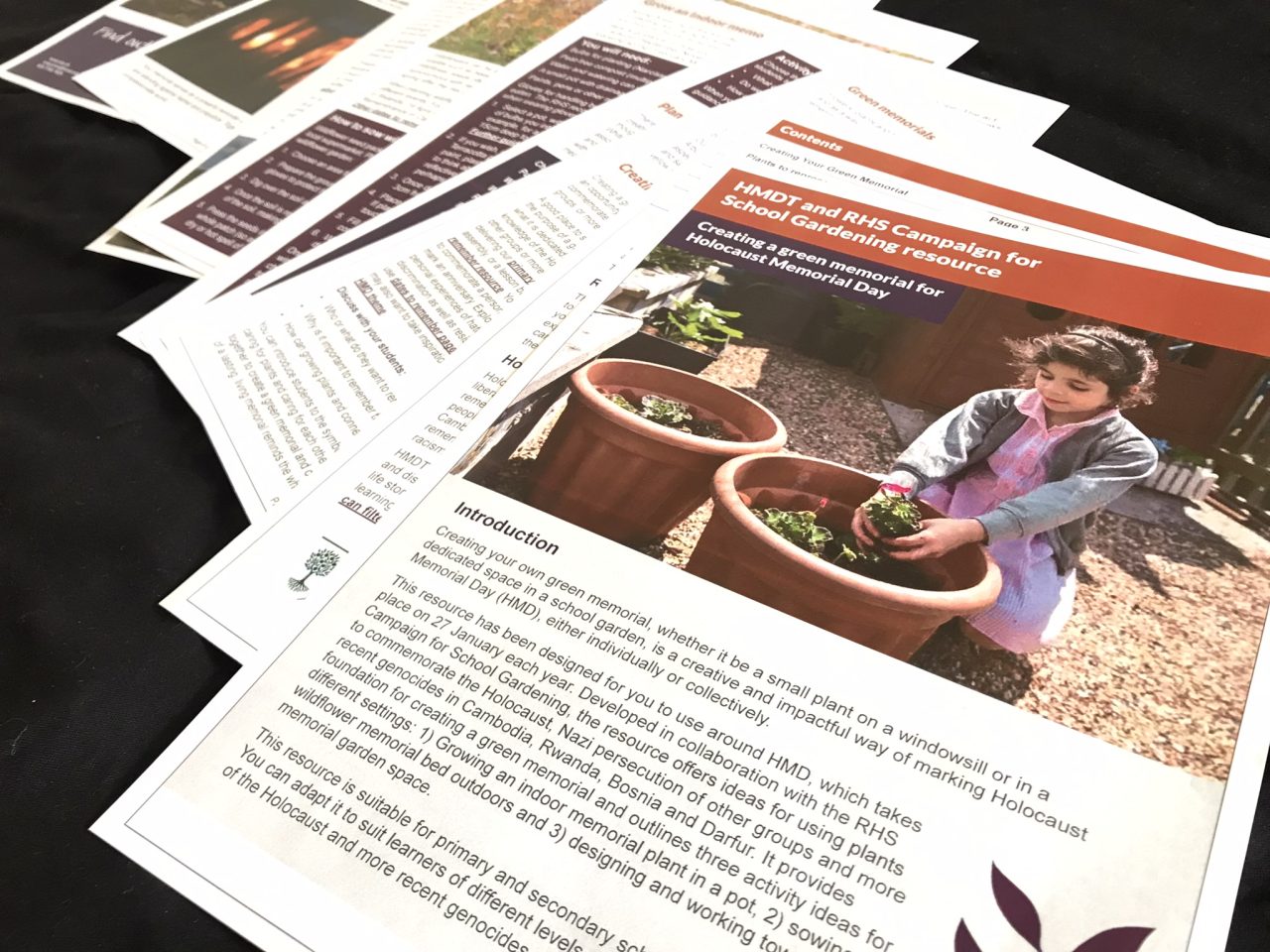
This resource, developed in collaboration with the Royal Horticultural Society (RHS) Campaign for School Gardening, offers ideas for primary and secondary school students to use plants to commemorate the Holocaust, Nazi persecution of other groups and more recent genocides in Cambodia, Rwanda, Bosnia and Darfur.
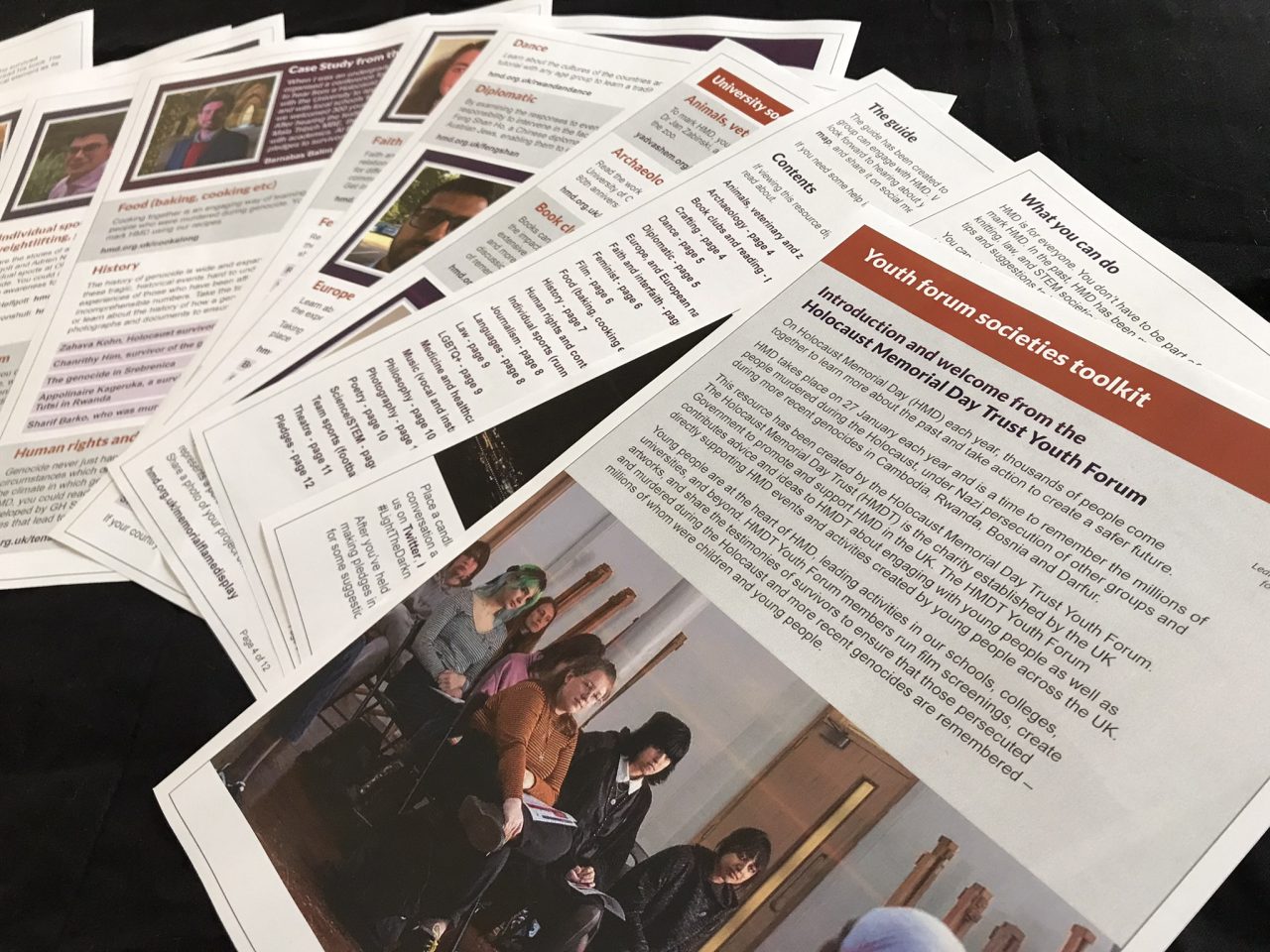
The Youth Forum Societies Toolkit has been created to provide you with ideas about how your university society, club or group can engage with Holocaust Memorial Day (HMD). We hope this guide will help you to find a way to mark the day in a meaningful way and look forward to hearing about your event or activity!
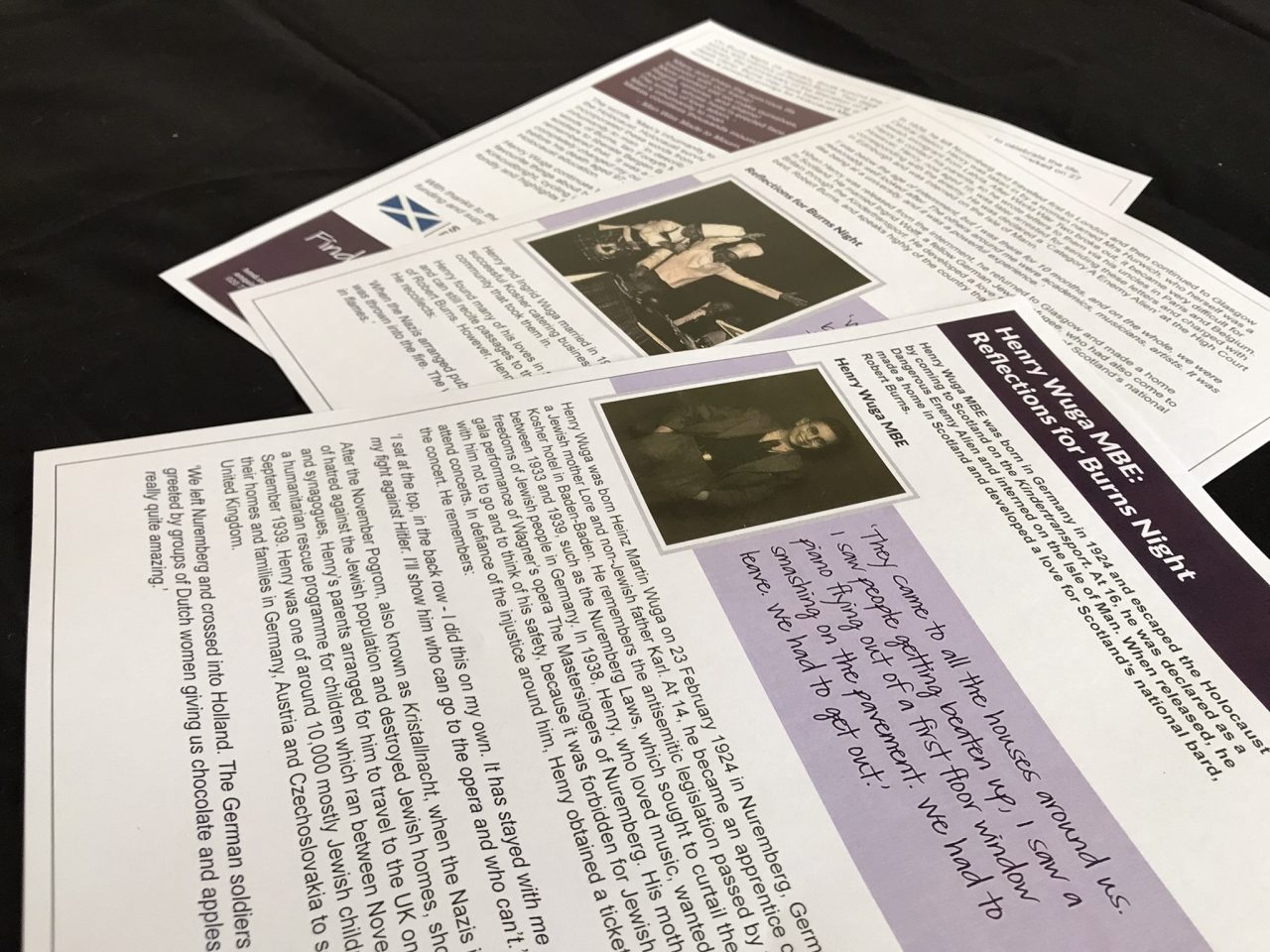
This resource is designed for Scottish secondary schools to mark HMD while supporting and complementing Burns Night celebrations. Read the story of Henry Wuga MBE who was born in Germany in 1924 and escaped the Holocaust by coming to Scotland on the Kindertransport. He made a home in Scotland and developed a love for Scotland's national bard Robert Burns.